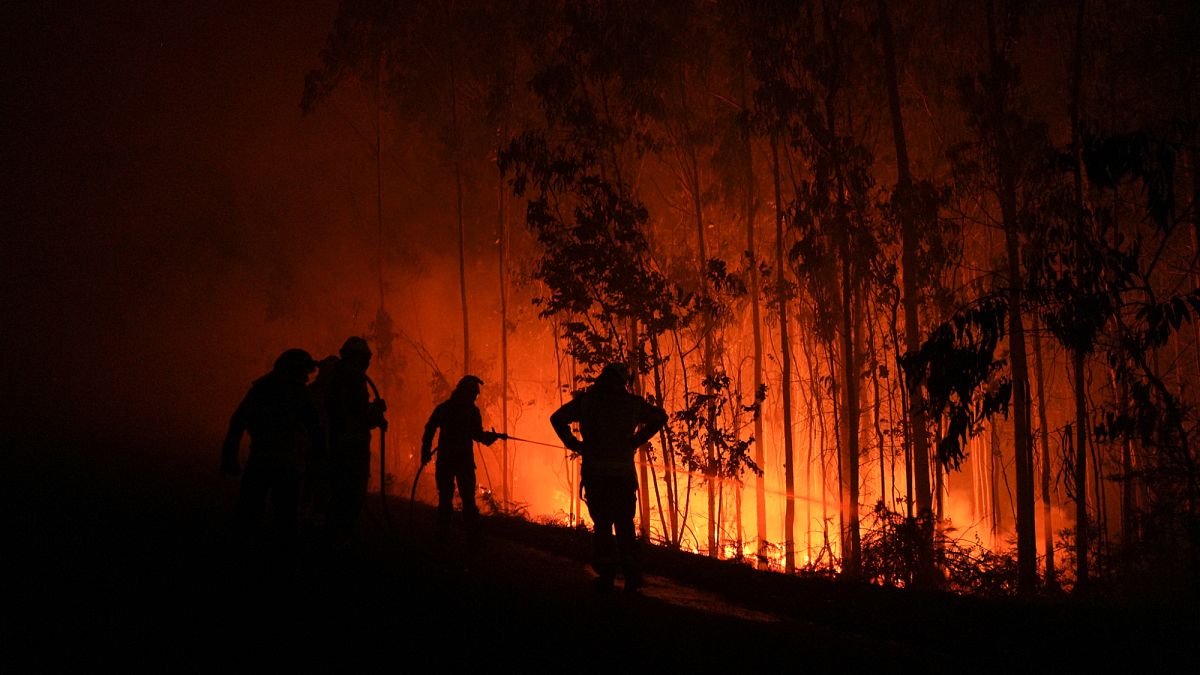

As we navigate through a season of climactic unpredictability, several regions around the world are experiencing weather extremes, prompting different responses and reactions across communities. In northwest Spain, the vibrant greenery of Galicia’s A Coruña province faces intense challenges as multiple wildfires scorch at least 500 hectares of forest. Firefighters, alongside local residents, demonstrate resilience and courage as they combat these fires, hoping to safeguard their environment and communities.
Meanwhile, over in Scotland, the advent of Storm Floris has brought with it gale-force winds reaching speeds of up to 137 km/h. This severe weather raised an amber wind warning, leading authorities to cancel trains and close parks to ensure public safety during the traditionally festive bank holiday period. Communities are responding with caution and preparedness, adapting their plans to account for nature’s formidable presence.
Elsewhere in Iberia, the collective regions of Spain and Portugal have proactively declared a high-alert status due to the increasing wildfire risks propelled by the persistent heatwaves sweeping across Europe. This precautionary move aligns with efforts to mitigate the potential devastation that could accompany these extreme temperatures.
In northern Portugal, a different atmospheric phenomenon poses yet another challenge. The region has witnessed ozone levels breaching safety thresholds, triggering health alerts for its residents. While ozone high in the atmosphere acts as a protective shield against solar radiation, near the Earth’s surface, it becomes a pollutant, posing particular risks to vulnerable populations.
The complexities of weather aren’t restricted to Europe. Japan and South Korea are also in the throes of a significant heatwave. Record-breaking temperatures have been documented across Japan, with the city of Tamba hitting a staggering 41.2°C. This surpasses previous national records, echoing similar conditions seen in South Korea, where Seoul experienced 22 sultry nights with temperatures above 25°C.
Yet amidst these instances of extreme heat, some regions explore a contrasting climate narrative. In eastern Australia, citizens find themselves enjoying a rare spectacle of snow—a meteorological outlier offering a crisp reprieve from the heat overwhelming many parts of the globe.
Political and systemic responses to these weather challenges highlight ongoing struggles, particularly in regions like Cyprus. Here, early warning systems and evacuation plans faced scrutiny, underscoring the complexities involved in managing such multifaceted emergencies.
Looking forward, weather watchers in France anticipate an upcoming wave of warmth, particularly in the southwest and the Rhône Valley. While temperatures are not expected to rival those of the recent heatwaves in June and July, preparedness remains key as communities brace for warmer days.
As each region navigates its unique set of challenges, these weather extremes serve as a reminder of nature’s power and the importance of adaptive strategies. Together, through mindfulness and solidarity, communities continue to respond to and embrace the dynamic rhythms of the natural world.
Source: {link}
